Magento is one of the most popular open-source eCommerce platforms. To be more exact, it’s the second most popular CMS, with over 250,000 Magento stores online, including global brands. Most of all, Magento is favoured due to its flexible shopping cart system, scalability, and easy controls.
However, these features can quickly lose value if you select the wrong Magento eCommerce hosting solution. If the web host is too weak to handle your store, severe technical issues or website drop can occur. To check the pricing for Magento hosting, check out our Magento Pricing page.
We have performed an independent study of the leading Magento hosting providers and compared them against what matters most for Magento eCommerce hosting; ease of setup, security, and price. Our research is further backed up by thousands of user reviews and surveys worldwide.
In this article, you can find the most reliable Magento hosts, each platform’s strengths and weaknesses, and more. But if you are in a hurry, here is our selection of the top Magento hosts.
Short on Time? Check Our Top Magento Hosting Providers:
- Kamatera– Best Magento Hosting on The Cloud
- Hostinger– Cheapest Magento Hosting
- HostArmada– Best Overall Magento Hosting
- A2 Hosting– The Fastest Magento Hosting
The Best Magento Hosting Services Of 2024 (Bought and Tested):






Personally, Kamatera is one of my favourites – whether it comes to Magento or any other CMS. It’s one of the pioneers of the VPS hosting industry, allowing for immediate deployments of various apps. Most importantly, you can rely on its cloud infrastructure to deliver optimal performance and speed.
- Overall Score: 4.9
- Server Performance: 5.0
- Security Features: 4.9
- Storage & Backups: 5.0
- Ease of Use & Support: 4.7
- Plans & Pricing: 4.8
Kamatera allows you to set up your Magento cloud VPS server in less than 60 seconds. You won’t have to pay upfront or commit to the long term. Instead, you can fully use the cloud, pay for what you use, and scale on-demand.
Research Findings:
Server Performance: Kamatera’s servers on the cloud deliver unbeatable availability and performance. You can expect leading server solutions for a broad diversity of computing resources, multiple locations worldwide, and a 99.95% uptime guarantee.
Security Features: You’ll benefit from high levels of privacy and security on all cloud servers. Kamatera also offers a specialised service, the Cloud Firewall, as an advanced safeguard system for your cloud servers, protecting against attacks, code injection, viruses, etc.
Storage & Backups: Kamatera offers extended daily backups of your server’s storage to an additional external storage array and the ability to restore previous file/directory/storage versions. However, the service costs an additional $3 per month. You can choose from 20GB SSD to 4,000GB SSD storage for your cloud VPS and add a hard drive to your cloud server. It’s accessible, cheap, and reliable, with prices starting at $0.05/GB.
Ease of Use & Support: All Kamatera customers receive 24/7 technical support. Kamatera professionals are super helpful and friendly and will deliver personal assistance round the clock. You can also get managed cloud support as an available add-on, whereas Kamatera will take over server management and maintenance tasks.
Plans & Pricing: With Kamatera, you can build your own Magento server, depending on your eCommerce store needs and traffic. You can start at $4 per month or $0.005 per hour for 1 vCPU, 1,024 RAM, 20GB SSD storage, 5,000GB Internet Traffic, and one public IP.
Pros & Cons
Pros:
- Scalable and powerful cloud infrastructure (13 global data centres, 99.95% guaranteed uptime)
- The ultimate flexibility to build your own server, depending on your needs
- Skilled and always available support staff (you will get excellent assistance even without managed support)
Cons:
- No shared hosting is available (cloud VPS resources might be pricey for some users)
- Expensive add-ons (managed support, backups, cloud firewall)
- Requires technical understanding and skill (fortunately, Kamatera technicians are available 24/7 to assist you with all issues)
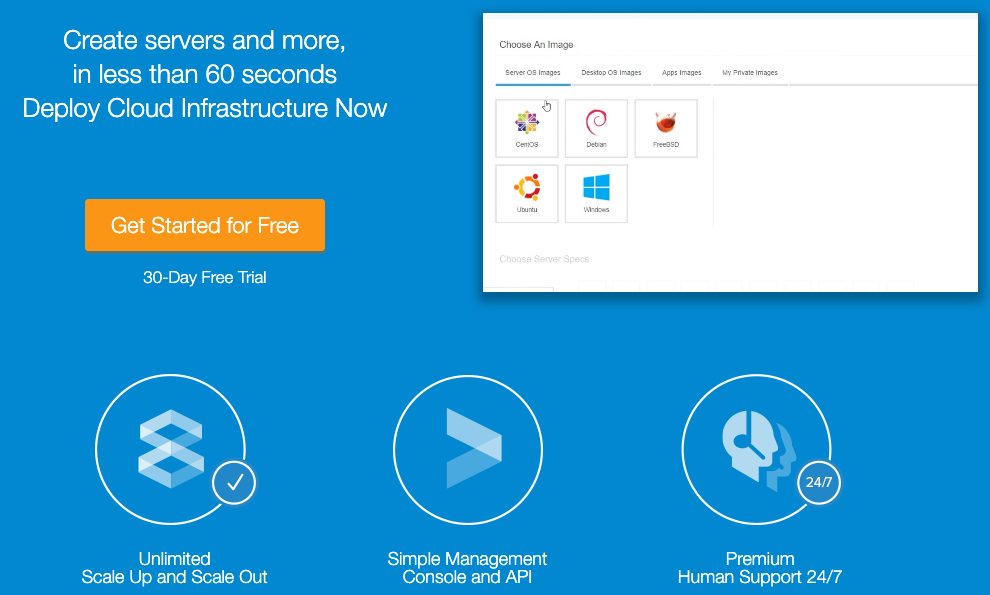






Personally, if I were looking for cheap Magento hosting, I would always select Hostinger. While its Magento hosting is relatively cheaper than competitors, its quality remains the same. In turn, you can expect the best value for money!
- Overall Score: 4.6
- Server Performance: 4.7
- Security Features: 4.6
- Storage & Backups: 4.7
- Ease of Use & Support: 4.2
- Plans & Pricing: 4.9
Hostinger offers Magento hosting on its cloud hosting plans, making it one of the fastest Magento hosting providers. The host delivers competitive pricing, regular discounts, and special offers. So, if you are price sensitive, it might as well be the perfect Magento host for your needs.
Research Findings:
Server Performance: You can choose from multiple data centres distributed globally, benefit from fast SSD storage, free Cloudflare CDN, 99.9% uptime guarantee, and a custom-built caching solution enabling quicker site load times and increased speeds.
Security Features: Hostinger grants you dedicated resources, HTTP/3 and dedicated IP address, and a free SSL certificate in all cloud hosting plans.
Storage & Backups: Hostinger performs daily backups and keeps them separately from website storage for a month. You can upgrade to 300 websites, 300GB SSD storage, and 12GB RAM.
Ease of Use & Support: Hostinger grants you its custom-developer control panel, the hPanel, to maximise your website potential, 1-click app installer, and 24/7/365 live chat support for all users.
Plans & Pricing: Hostinger’s Magento cloud hosting plans start at $9.99 per month for 300 Websites, 200GB SSD Storage, 3GB RAM, 2 CPU Cores, and many extras and freebies. If something goes wrong, you can get a full refund within 30 days.
Pros & Cons
Pros:
- Excellent pricing (affordable dedicated resources on the cloud)
- Unlimited features (email, bandwidth, databases, free migration, etc.)
- Fully managed solution with an instant setup and room for growth
Cons:
- Customer support needs improvement (there’s no phone support, live chat is limited to existing customers, and there are only a few materials on Magento hosting)
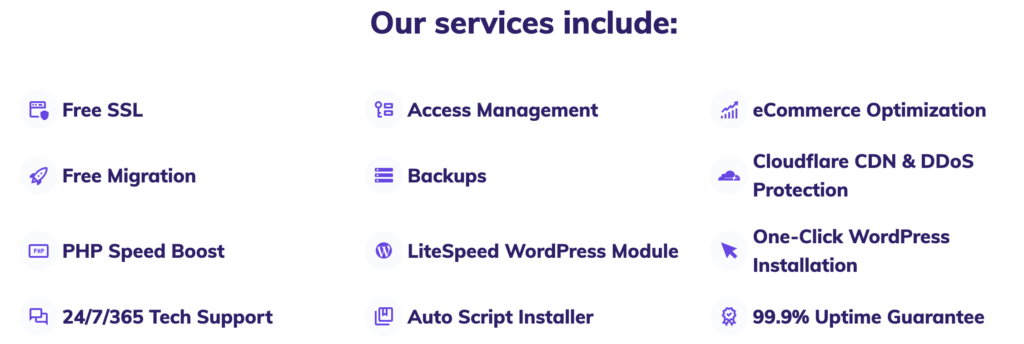





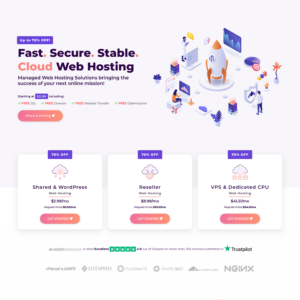
My entire research has shown me that HostArmada is the best overall Magento host. It offers web hosting services specially enhanced and optimised for the Magento 2-based websites with the most important features just a click away!
- Overall Score: 5.0
- Server Performance: 5.0
- Security Features: 5.0
- Storage & Backups: 4.9
- Ease of Use & Support: 5.0
- Plans & Pricing: 4.9
With HostArmada, you’ll get managed Magento web hosting services. The host regularly updates and supplies multiple PHP versions, checks the health of its storage units, and performs many other daily routines to ensure you always get a Magento 2 hosting service in a top-notch state.
Research Findings:
Server Performance: HostArmada uses the best-in-class SSD drives for its Magento storage. Its cloud SSD technology accounts for 99.9% uptime and no hardware failures. You’ll also get a web server cache and share the environment with a low number of clients.
Security Features: HostArmada utilises two security firewalls on its Magento servers to provide optimal protection levels for all types of attacks. All customers also get a free SSL.
Storage & Backups: You’ll always have a backup one click away, thanks to HostArmada’s offsite daily backup solution. HostArmada also includes superior cloud SSD storage on all plans; you can upgrade to 40GB SSD on a shared hosting plan.
Ease of Use & Support: You’ll get an easy-to-pilot service with cPanel and a 1-click Magento 2 installer, backed up by 24/7 technical support to assist you in migrating Magento 2 websites, installing themes, plugins, SSL certificates, optimising websites, and more, all on time.
Plans & Pricing: HostArmada’s cheap Magento hosting lets you start at $2.99 per month. You can choose from monthly, annual, biennial, or triennial plans, with an incredible price to value and a money-back guarantee.
Pros & Cons
Pros:
- Excellent performance (the fastest read/write times on a cloud SSD infrastructure)
- Lots of freebies (free domain, SSL, seven daily backups, malware scan, removal, WAF & IP firewall)
- Incredible ease of use (1-click Magento 2 installer, cPanel, automatic daily backups)
Cons:
- Pricey standard rates (you can “avoid†those by signing up for the longer term)
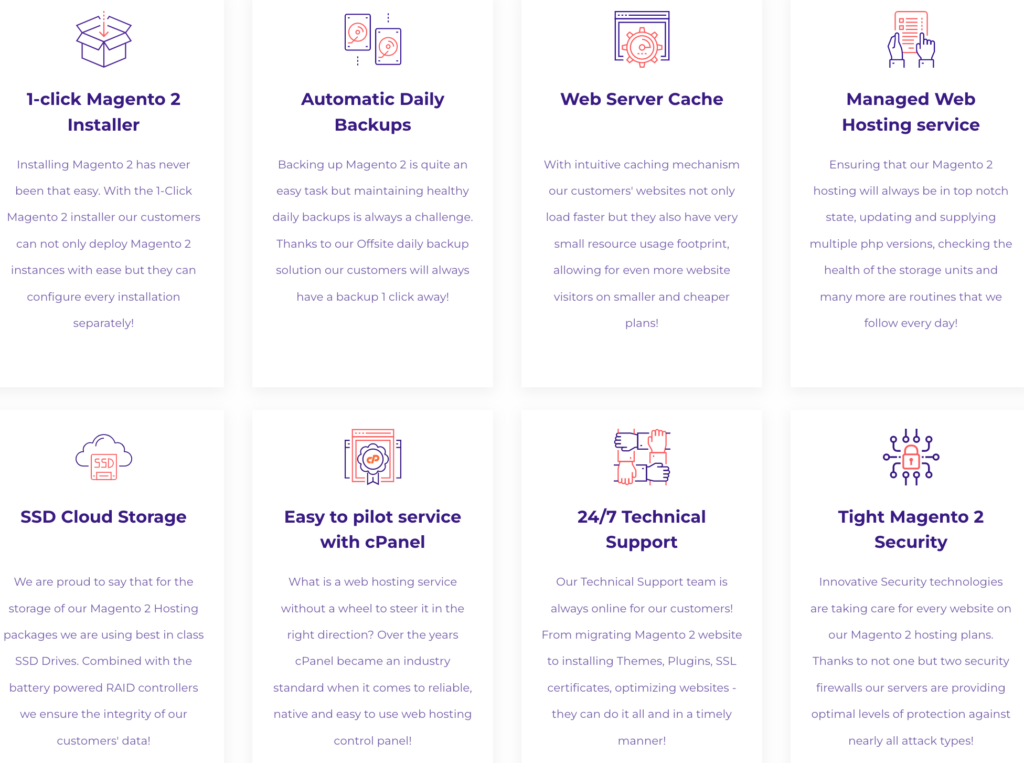






Are you looking for the fastest Magento hosting available? Look no more; A2 Hosting offers blazing fast Magento service with Turbo servers featuring page loads up to 20 times faster than those other hosts.
- Overall Score: 4.7
- Server Performance: 4.9
- Security Features: 4.7
- Storage & Backups: 4.6
- Ease of Use & Support: 4.8
- Plans & Pricing: 4.5
A2 Hosting allows you to install Magento on several different web hosting solutions. Still, going for a Managed VPS or Managed Bare Metal Dedicated Turbo plan is guaranteed to deliver the fastest and most secure eCommerce experience for your clients.
Research Findings:
Server Performance: SwiftServer platform, speed-optimised servers with your choice of server location, free SSDs, LiteSpeed web server, and up to 20X faster Turbo Server option featuring AMD EPYC Servers with NVMEe drives.
Security Features: A2 Hosting’s Perpetual Security measures include free HackScan Protection, Reinforced distributed denial of service (DDoS) Protection, KernelCare rebootless kernel updates, brute force defence, a dual firewall, and many other security features.
Storage & Backups: While the managed solutions include daily, automated, and rebootless updates, you’ll have to take care of just about anything by yourself with an unmanaged solution. As for the storage, you can upgrade up to 2X1TB SSD storage on a dedicated server.
Ease of Use & Support: Your Magento software comes pre-installed and A2 Optimised on your Shared Hosting account. You’ll also receive free account migration and a friendly and knowledgeable support team available 24/7/365 to help.
Plans & Pricing: You can launch your Magento store on A2 Hosting’s unmanaged VPS, unmanaged dedicated hosting, managed VPS, or dedicated servers. The first one is the cheapest Magento hosting, allowing you to start at $54.99 per month for 16GB RAM, 250GB SSD, 6 Cores, 3TB Transfer, and root access.
Pros & Cons
Pros:
- Turbo Servers for 20x speed boost (AMD EPYC Servers with NVMEe drives; 40% Faster CPU Performance, 2X Faster To First Byte, 9X More Traffic, 3X Faster Read/Write Speeds)
- A developer-friendly Magento solution (PHP 5.6, 7.1, 7.2, 7.3, 7.4 or 8.0, MySQL 5.6/MariaDB, PostgreSQL 9.6, Python 3.4, PERL 5.10, Apache 2.4, Node.js 12, FTP / SFTP, Free SSH Access)
- The best Guru Crew Support is available 24/7/365
Cons:
- Restrictions on the cheaper shared hosting plans (it lacks unlimited storage and free automatic backup)
- More expensive than competitors (the prices further increase on renewal)
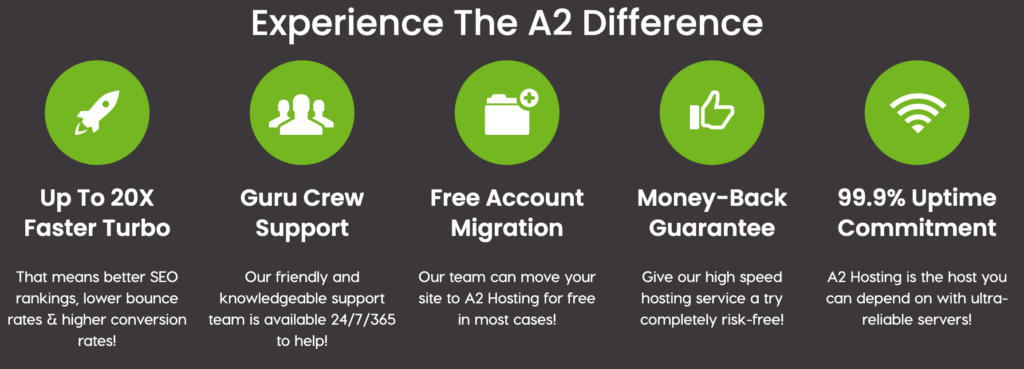
Ranking comparison between the Top Providers
How Do We Rank and How Should You Choose Your Best Magento Hosting?
- Magento Compatibility7%
- Types Of Magento Hosting Plans5%
- Managed Vs. Self-Managed3%
- Features4%
- Uptime6%
- Website Speed6%
- Server Locations4%
- Security Practices8%
- Storage7%
- Backups6%
- Price To Value3%
- Ease Of Use3%
- Customer Support8%
- User Reviews30%
The criteria for evaluating each provider varies from category to category. We set the factors we will use in ranking and assign them particular weights in percentages. We then use these numbers in weighting and calculating a single weighted score of each provider within a category. Higher percentages indicate that the particular factor contributes more to the ideal host, or in this case, the ideal Magento hosting provider.
As you’ll come to realise, we give significant weight to user reviews, which is the only factor consistent across all categories. Worldwide customers are an excellent indicator of one’s quality, which, combined with expert opinions and real-time performance testing, make up for the perfect, unbiased score. Other things we gave extra points for within the Best Magento Hosting category are security and customer support responsiveness.
Here’s a list of all the factors and their allocated weights our AI technology used to rank the top Magento hosting providers:
- Magento Compatibility (7%): First and foremost, the web host should provide functions compatible with Magento, such as PCI (Payment Card Industry) compliance, so that your Magento store doesn’t face unwanted compliance issues; MySQL 5.6 or higher and PHP 7.0 or higher for seamless performance, and Apache 2.x/ NGINX/ Litespeed servers.
- Types Of Magento Hosting Plans (5%): Cheap Magento hosting on a shared server might be sufficient if you have a small eCommerce store that doesn’t get a massive amount of traffic. However, if you plan to grow your Magento store with more products and attract significant traffic, or security is your primary concern, shared hosting isn’t the preferable option. Instead, it would be best to opt for VPS, cloud, or dedicated hosting. And while a dedicated server is the costliest option, it would grant you a web server with all its resources all to yourself. Your Magento store will be the only one taking up all server power, thus delivering incredible performance and speed. The Magento eCommerce hosting should grant you flexibility and freedom in the perfect case scenario. You should be able to scale up or down depending on your Magento store needs and expected traffic. The best solution for this is cloud hosting, delivering resources on demand. For more insight on Magento cost, check out our Magento Pricing Page.
- Managed Vs. Self-Managed (3%): Does the web host provide managed Magento hosting? The Magento hosting service provider will take over the server management and administration technical tasks with this option. So, you can expect a fully optimised server. Otherwise, you’ll have to dedicate significant time and effort to set up the server and make it fully functional. Also, you’ll need tech skills and experience to do so.
- Features (4%): What does the Magento web hosting plan include, and what will you have to pay extra? Consider managed migrations, hourly backups, server-side security and patches, continuous monitoring, free SSL, Cloudflare CDN, unlimited app instals, etc.
- Uptime (6%): Can the Magento web hosting provider keep your store up and running? What if a customer tries to access your website, but it’s down? You lose the customer. It’s as simple as that. You should strive towards uptime as close to 100% and avoid anything below 99.95%.
- Website Speed (6%): Loading times are essential for any type of website, but especially for eCommerce stores. If you have a Magento store, slow loading speeds translate to loss of customers and, therefore, profits. People don’t like waiting around, so you can quickly lose half of your prospective customers if your site loading speed is over three seconds. Can the server handle overloads? The fastest Magento hosting services utilise SSDs, caching, and the newest technologies to deliver maximum speed for your store.
- Server Locations (4%): The Magento hosting provider’s server network can further affect your website speeds. The rule of thumb is that the closer the web server is to your target audience, the better speeds they will experience. Apart from response times, the server location also affects your SEO rankings. In reality, these two are proportionally related. But what happens if you have a global audience? Then a single server location wouldn’t be sufficient. Instead, it would be best to get a top Magento hosting company with CDN (Content Delivery Network) availability.
- Security Practices (8%): Magento stores are protected by nature, but that doesn’t mean you should oversee the importance of server-side security. The best Magento hosting providers will protect all data, including customers’ personal information, credit card details, confidential data, and more. At this point, you should look for two-factor authentication, dedicated firewalls, IP whitelisting, SSL certificates, server-side virus scanner, patch updates, firmware upgrades, and more.
- Storage (7%): The storage capacity should meet your business needs. A small store doesn’t have the same requirements as a large website with many images, music, or video files. One thing to keep an eye on at this point is “unlimited storage.†There’s no such thing as unlimited when it comes to web hosting, so you should read the fine print to learn these restrictions. Usually, you’ll encounter a fair usage policy, which might be sufficient for smaller stores on shared hosting plans, but certainly not for medium to large stores. You can also consider using cloud storage, such as Google Drive.
- Backups (6%): Your data is your Magento store’s asset. Unfortunately, you might easily “lose†it on the web. So, you must consider how the Magento web host handles backups and data loss. How frequently does the provider perform data backups? How do they secure this data, and how long do they retain it? Is the backup process an automated one, occurring at a regular interval, and so on?
- Price To Value (3%): How does the Magento host price its plans? There’s no cheap or expensive, but you must assess the price to value ratio instead. How much are you paying, and for what? Can you get a better Magento hosting service for a lower price elsewhere? What about discounts and renewal prices? Is there a money-back included? If yes, how many days does it cover?
- Ease Of Use (3%): You should prioritise a user-friendly interface if you are a beginner. You should be able to easily navigate the service and make changes as necessary. Here, self-help databases deliver a significant value – you should look for a web host with a comprehensive Knowledge Base, tutorials, videos, how-tos or step-by-step guides, etc.
- Customer Support (8%): As an eCommerce store owner, you’ll want premium, technical support available 24/7 across several channels to assist you with all issues. If you encounter a problem, you probably wouldn’t want to wait until 9 AM on Monday, losing all potential customers in the meantime. These professionals should be reachable via live chat, ticketing system, phone, and email. Furthermore, they should be fast, responsive, and helpful. And it would also help if they were friendly and willing to repeat some things if they seemed complicated.
- User Reviews (30%): The best way to check customer support responsiveness, knowledge, server speed, security, uptime, frequency of outages, etc., is by looking at unbiased and verifiable customer reviews. You can learn from their experience, but it’s also not advisable to rely entirely on another customer. It would help to also check what experts are saying and the Magento host’s website for the plans and pricing, features, and freebies.
What Is Magento Hosting, and Who Is It For?
Magento is one of the most popular eCommerce platforms, with a unique set of features that make it both simple to use and powerful. It offers all necessary themes and plugins for a smooth operation; therefore, it’s clear to understand why the platform has such a large following.
To begin with, it has all of the amazing features that an eCommerce website should have. It’s free to use in the open-source community, and there’s a paid version called the Enterprise Edition. The premium edition will, of course, have more features and provide consumers with greater support, but the free version also has some useful features for tiny online stores.
Magento eCommerce hosting is a good option when you own or help manage an eCommerce business. The platform’s founders made it simple to use for regular people, implying that you do not need to have any technical or developing experience to navigate it.
The best Magento hosting will provide you with the functionality you want if you offer downloaded items, personal creations, or clothing on your eCommerce site. Therefore, it’s one of the most excellent platforms for creating an online business.
What Are The Key Features of Magento?
Magento’s open-source version is a full-featured e-commerce platform, not a trial version. And there is virtually nothing that the Community Edition cannot achieve if you are willing and able to spend the time to establish and configure the program.
The following is a summary of the essential characteristics that both versions have in common.
- Valuable tools that may assist demanding online store owners expand and promote their storefronts: a display of related items on product pages, highly customizable coupons and unique pricing rules, tiered pricing and volume discounts configuration; Magento upsells offers and cross-promotions and creates category landing pages, displays recently viewed items to customers, new item promotions, and packaged products and bundling. Furthermore, it offers multiple shipping options, including support for free shipping, managing email newsletters, enabling customer wish lists and send-to-friend functions, and displaying polls and surveys.
- Magento provides SEO tools to help searchers discover you online: XML Site Map, pretty URLs with complete control over URL settings, Google Content API, popular search terms page, and HTML metadata for products, categories, and content pages.
- Site management features: managing multiple sites from one administration login, full customizable theming and templating engine, internationalisation and localization built-in, including currency support. Magento also offers user types with customizable permissions, Web Services API for third-party integrations, built-in CMS for pages, blog posts, announcements, landing pages, and other content, tax calculations based on multiple areas and customer types, batch import and export of all data and anti-spam measures such as CAPTCHA.
- Catalogue management features: straightforward configuration of product groups and variations, variable pricing for different customer groups, group custom attribute fields into attribute sets for quickly creating similar products within a class of items, complete inventory management tools with RSS alerts, digital/downloadable products and sample excerpts, unlimited product attributes, automated product image resizing and watermarking, specialised pricing rules with multiple options and conditionals and batch updates to product groups, and more!
- Catalogue browsing options: multi-layered navigation with search results and product categories, catalogue search with auto-suggest, breadcrumb navigation, filter, and sort by price or price range, compare Products, category, and product-specific page designs, and templates.
- To help you create a product display system that showcases your inventory to its greatest advantage, Magento offers the following features: multiple images for a product, image zoom, product options, grouped products, wishlist, tiered pricing upsell, availability, send to a friend and to share to social media.
- For checkout, payment, and shipping configurations, Magento provides single page checkout, checkout as a guest or with an account, SSL / HTTPS support for orders, saved shopping carts, gift messages (per order, per product), ship to multiple addresses in a single order. Also, it provides invoice billing, integration with multiple payment gateways, including PayPal and Authorize.net, accepting checks, money orders, and purchase orders, shipping, and tax estimates, “Bill Me Later†option, shipping rates calculated by weight, volume, and the number of items, flat rate, and free shipping and order tracking.
- Magento’s order management features include a variety of tools that assist in assuring the purchasing process’ correctness and reliability: multiple invoices per order, shipping integration, and label printing, with real-time rates from UPS, USPS, View, edit, create and fill orders from backend, call-centre order-taking interface and assisted shopping, custom Order Statuses, FedEx, and DHL, order duplication, re-order, new order notifications via email or RSS.
- To set up, administer, and manage client accounts: unlimited ship-to and bill-to addresses, with a default selection, tracking, order status and history, re-order, wishlist with commenting, product reviews, and tagging history, access to downloadable products, and email subscription management.
- Customer support capabilities: contact form, order tracking from an account, creating and editing orders as admin, password reset from admin or front-end, and automated emails for account and order activity.
- Access to analytics: admin reports dashboard, easy integration with Google Analytics, and detailed reporting on virtually every facet of the store, including sales, tax, cart abandonment, most viewed, top-performing products, search terms, review activity, inventory, coupon use, refunds, revenue, and invoicing.
Here are the most critical features only available to Enterprise customers: customer segmentation, targeted promotions & merchandising, persistent shopping, abandoned cart recovery, and private sales. Additionally, it offers dynamic rule-based product relations, page caching, gifting options, and PA-DSS-certified payment processing.
There are more Enterprise features that are worth exploring, such as rewards points and customer loyalty programs, store credit, enhanced CMS features, scheduled data import and export, multiple wishlists, return management, backup and rollback tools to protect your site in the event of hacking or other performance issues, staging and development environments with sync and rollback features, improved search, and administrator activity logging.
Pros and Cons of Magento
Even the best-of-the-best have flaws. To verify Magento is the correct platform for you, compare and contrast the following aspects.
Pros:
- Magento is an open-sourced e-commerce platform that is both mature and free
- Many providers set up their servers to get the most out of Magento hosting
- Script installers make it simple to install Magento on most hosting packages
- To get a simple site up and running, Magento doesn’t require any extra server software
- Magento delivers security upgrades on a regular basis
Cons:
- Because Magento is a complicated collection of e-commerce technologies, it has a somewhat high learning curve.
- Depending on the performance of your server, Magento might cause your site to slow down.
- Because there have been a few cybersecurity compromises in the past, you should upgrade Magento as soon as a new version is released to avoid disaster.
Magento’s Hosting Requirements
For the Free Version of Magento, several Magento hosting providers offer one-click installation wizards. You can presume the technical criteria are satisfied if your server provides Magento with one-click instals.
Here are the main requirements of Magento.
- Linux – x86-64
- Nginx 1.7x
- MySQL 5.6+
- Apache – 2.x
- PHP 5.4+
You will very certainly need HTTPS support, depending on the payment provider you choose. As a result, you’ll require a hosting package that includes SSL support. This will, at the very least, necessitate a dedicated IP address.
Given the complexity and performance requirements of a big eCommerce site, a VPS hosting package is definitely preferable to a shared hosting service.
Why Should You Choose Magento Hosting?
While standard hosting may operate for Magento online shops, selecting a Magento web host that specialises in Magento is your best choice for a well-run site. The following are some of the reasons why you should use specialised Magento hosting.
- Managed Hosting: It’s easy to become technical when it comes to setting up and running an online business. If you aren’t tech-savvy, this can be a problem. Magento hosting companies should have people on staff who have experience dealing with difficulties that arise with Magento websites. You’ll be able to obtain assistance with Magento-related issues. This knowledge translates into time and cost savings. You can rapidly fix any problems with your website so you can concentrate on earning sales.
- Performance: Magento sites have their own set of needs. Although a generic host may provide adequate hosting services, are their servers suited for serving Magento websites? Your site will also be PCI compliant if you use a reputable supplier. You can provide integrated payment options and securely handle credit cards with a PCI-certified site.
- Automated Daily Backups: You can restore your website if it is hacked or otherwise compromised. Daily automated backups can be provided by a Magento web hosting provider, frequently at no cost to you.
- Security: When running an eCommerce shop, you don’t want to be concerned with hackers and malicious intruders. DDoS protection, as well as a good firewall and anti-malware approach, are usually included with Magento hosting.
- Faster Load Times: For online retailers, speed is critical, and it is also critical for Ecommerce SEO. In a perfect world, your Magento shop would load in under two seconds. The world’s fastest Magento hosting full page cache, LiteMage Cache, is completely optimised on the servers of the main Magento hosting platforms.
- Flexible and Affordable: Most generic suppliers have a hosting package and price that aren’t specialised for a Magento webshop, making them more expensive than they need to be. Magento-specific plans would be available from the cheap Magento hosting solution, saving you money.
Managed vs. Self-Managed Magento Hosting
The first difference you’ll notice between the two is pricing – but that should be the least of your concern. Or, well, at least among the final considerations. It’s much more important to consider the core difference between managed and unmanaged/self-managed Magento hosting.
- Managed Magento Hosting: With a managed hosting plan, the host will take care of the hardware to maintain your server running smoothly and safely. Consider working with a Magento expert who would be capable of smoothing the host environment to ensure that Magento code and database systems operate smoothly.
- Self-Managed Magento Hosting: You will be responsible for setting, patching, and upgrading the server(s) if you self-manage your hosting. This will most probably be the best choice for you if you desire flexibility and want to keep hosting expenses low.
Best Magento Hosting Services: Summary
As time goes by, Magento hosting is becoming more popular. And especially with the pandemic and so many businesses transferring their operations worldwide. Still, it’s challenging to find the best Magento hosting provider for your eCommerce needs.
Top Magento hosting companies combine superior performance, security, support, and ease of use. You should get sufficient storage and backups and an excellent price to value. Sounds tricky? That’s because it is. It’s pretty easy to get lost with so many available options. So, it’s best to follow someone’s advice, backed up by real-life testing and proper evaluation. If not ours, ensure to check another reliable and unbiased source before launching your Magento store.
Competition is tough, and a mistake can cost you much – loss of customers, profits, and SEO. So, choose wisely and let your eCommerce store finally reach its full potential!













